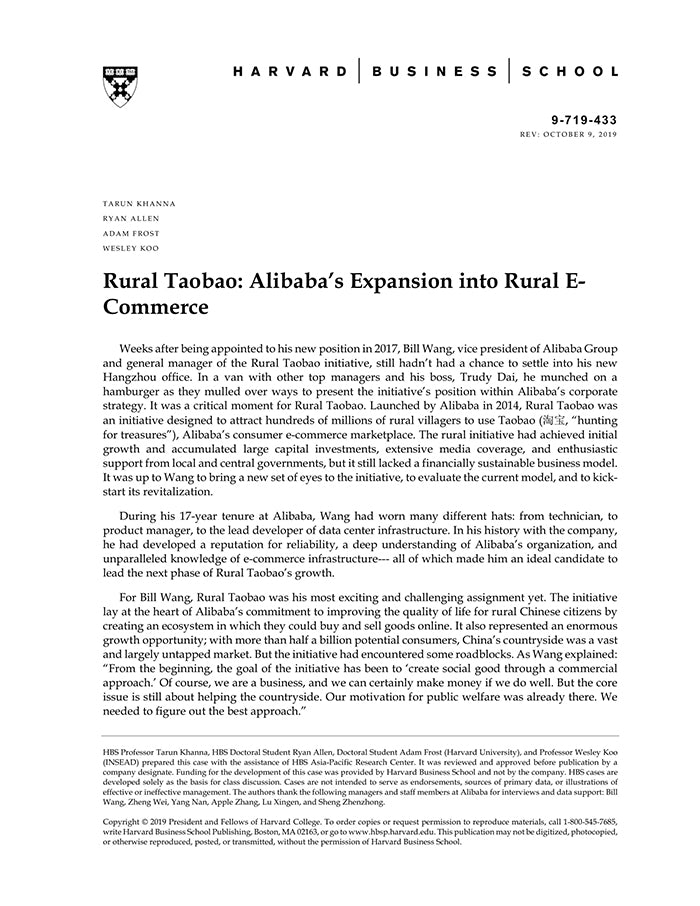Rural Taobao: Alibaba's Expansion into Rural E-Commerce
受取状況を読み込めませんでした
Alibaba's Rural Taobao initiative had been launched in 2014 as a public service initiative to increase e-commerce adoption in China's remote rural areas. In the first two iterations of the initiative, dubbed "1.0" and "2.0", Alibaba had partnered with local businesses and young returnees to operate village stations. Village stations served as logistical and educational hubs to help villagers make online purchases. Despite significant growth in sales through village stations, the business model was operating at a loss, and competitors JD and Pinduoduo were growing quickly, threatening to challenge Alibaba by claiming the rural e-commerce markets. Bill Wang, the head of the initiative, was tasked with designing and implementing the next model for Alibaba's future expansion into rural areas. The decision centers around whether Alibaba should copy the successes of competitors JD and Pinduoduo, escalate commitment to its original value proposition (hands-on service to villagers), or embrace an entirely new model. The case highlights the competing pressures of financial performance, CSR and corporate mission, government relations, and long-term competitive positioning that are common to major strategic decisions.
【書誌情報】
ページ数:23ページ
サイズ:A4
商品番号:HBSP-719433
発行日:2019/1/3
登録日:2020/10/19


